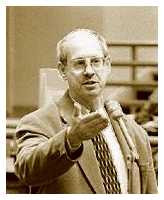Language Acquisition Not Just Child's Play
Unconscious Learning Crucial for Adult Competence, Says Stephen Krashen
This is Stephen Krashen's reply to Robert O'Neill's
comments about acquisition and learning in a recent
"Achievement Profile." (Read also Robert O'Neill's new rebuttal)
There is no doubt that adults are better at conscious learning than children are, and that conscious learning is helpful. But it is also very limited. Only a small percentage of rules are learnable (many are extremely complex) and linguistic science has not even successfully described all the rules of any language. In my view, studies claiming to show the effectiveness of grammar teaching only confirm how limited it is: gains are modest, often short-lived, and show up when tests are used that allow the use of the conscious grammar (see my 1999 paper in Foreign Language Annals).
Also, there is no doubt that adults are typically not as successful as children in second language acquisition. But many adults do very well in second language acquisition, acquiring nearly all of it. This is an astounding accomplishment that we often do not recognize because of the tiny imperfections these advanced acquirers may have in their second language competence.
Stephen Krashen
2002 ESL MiniConference Online
 I disagree with Robert O'Neill. There are good reasons to hypothesize that adults can also "acquire" language. (1) As is the case in child language acquisition, adult language acquisition is also stimulated by comprehensible input. This claim is supported by the many studies showing that adult students in classes with more comprehensible input do better than those in classes with less.
(2) Adult second language competence, like child language competence, emerges in a predictable order that cannot be changed by instruction (a "natural order").
(3) Adults acquire many complex rules they never learned.
I disagree with Robert O'Neill. There are good reasons to hypothesize that adults can also "acquire" language. (1) As is the case in child language acquisition, adult language acquisition is also stimulated by comprehensible input. This claim is supported by the many studies showing that adult students in classes with more comprehensible input do better than those in classes with less.
(2) Adult second language competence, like child language competence, emerges in a predictable order that cannot be changed by instruction (a "natural order").
(3) Adults acquire many complex rules they never learned.
Emeritus Professor, University of Southern California